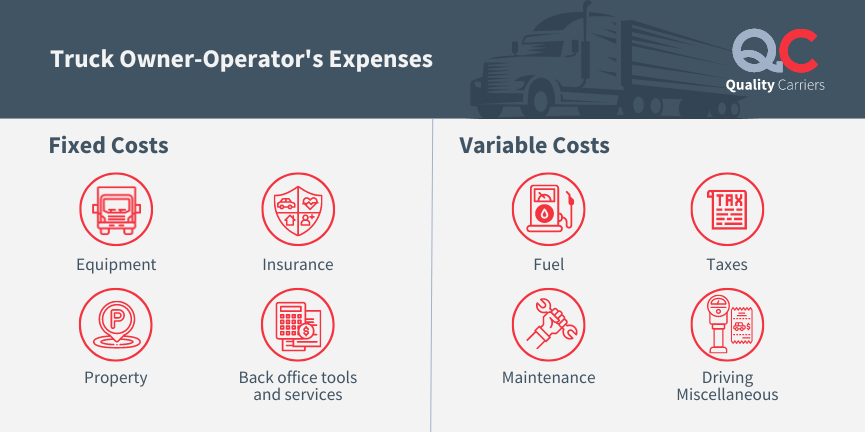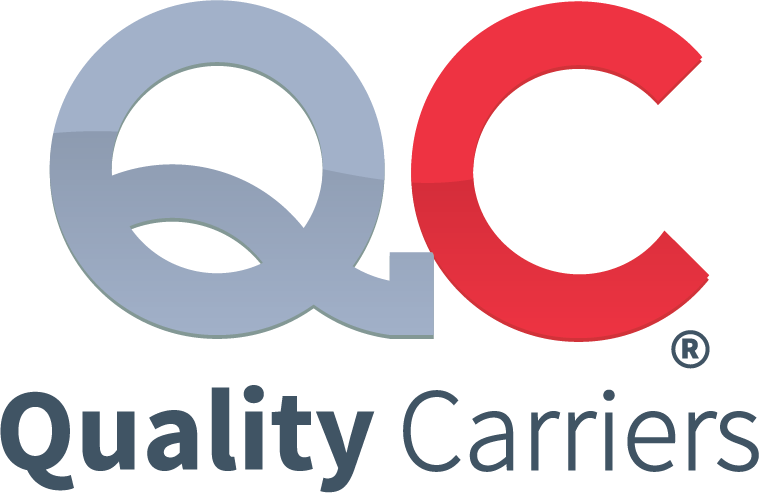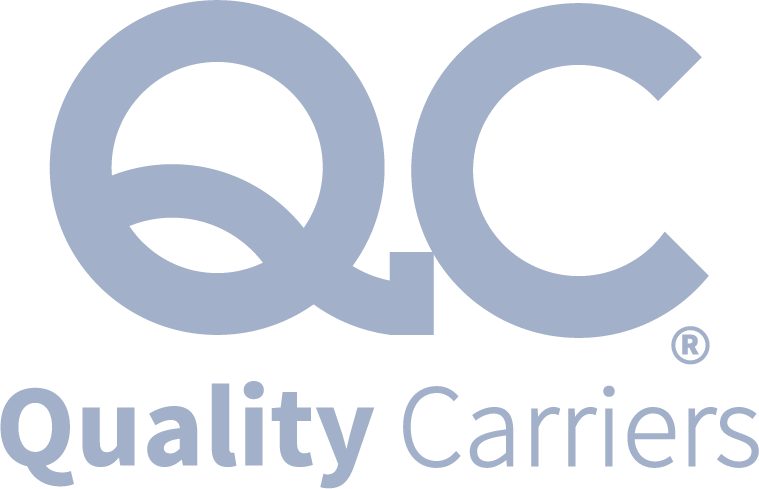One of the most pressing questions for those considering a career in the trucking industry or for current truck drivers exploring the transition to owner-operator status is often, “How much do owner-operators make per mile?” This question speaks to financial viability and career sustainability in trucking.
In this blog, we’ll explore owner operator earnings, factors influencing earnings, and expenses as an owner operator. Whether you’re a seasoned truck driver or someone contemplating a career change, gaining insights into owner operator earnings can provide invaluable guidance in navigating the road ahead.
What Are Owner Operator Trucking Rates?

Owner operator trucking rates are the compensation earned by independent truck drivers who own and operate their vehicles. Generally, owner operators are paid on a per-mile basis. However, specialized freight or long-haul routes may command higher rates, while shorter or less desirable routes may offer lower compensation. Understanding owner operator trucking rates is essential for drivers to accurately estimate their potential earnings and negotiate fair compensation for their services.
Factors Determining Owner Operator Trucking Rates
Understanding the factors influencing owner operator trucking rates is essential for drivers and shippers alike. Several key factors determine these rates, each playing a crucial role in the overall cost of transportation services.
Distance of Travel
A shipment’s distance is crucial in determining the owner operator trucking rate. Longer distances require more fuel and time, leading to higher transportation costs. Owner operators may charge higher rates for longer hauls to compensate for these additional expenses.
The Shipment’s Weight
The weight of the shipment also influences the trucking rate. Heavier shipments require more fuel and may necessitate larger vehicles or specialized equipment for transportation. Owner-operators may charge higher rates for heavier loads to cover the increased fuel and equipment costs and the potential impact on vehicle wear and tear.
Shipment Density
Shipment density refers to the amount of space a shipment occupies relative to its weight. Items with higher density take up less space than their weight, while those with lower density occupy more space for the same weight. Shipment density affects the efficiency of cargo loading and transportation capacity utilization. Owner operators may adjust their rates based on shipment density, with higher rates for low-density freight occupying more truck space.
Freight Classification
Freight classification categorizes shipments based on various factors such as weight, dimensions, value, and handling requirements. Different freight classes correspond to other rates, with higher classes typically associated with higher rates. Owner operators consider the freight classification when determining their rates, as it directly influences the transportation costs and potential liabilities related to the shipment.
Truck Owner Operator’s Expenses

Running an owner operator business involves both fixed costs and variable costs.
Fixed Costs
Fixed costs for owner operators are expenses that remain consistent irrespective of fluctuations in business activity.
- Equipment: This includes purchasing or leasing the truck, trailer, and any necessary accessories or modifications.
- Insurance: Owner-operators need various types of insurance coverage, including liability insurance, cargo insurance, and physical damage insurance for their truck and trailer.
- Property: This may include expenses related to owning or leasing a parking lot or storage facility for the truck and trailer when not in use.
- Back office tools and services: These are expenses associated with administrative tasks, such as accounting software, office supplies, and hiring bookkeeping or administrative assistance. These tools and services help owner operators manage their business operations efficiently.
Variable Costs
Owner operator trucking variable costs fluctuate based on business activity or the number of miles driven.
- Fuel: This is one of the owner operators’ most significant variable costs. It includes the cost of diesel fuel needed to operate the truck, which can vary based on fuel prices and the distance traveled.
- Taxes: Owner operators are responsible for various taxes, including fuel taxes, highway use taxes, and income taxes. These taxes vary based on the miles driven, the state or jurisdiction traveled through, and the income generated.
- Maintenance: This includes expenses for maintaining and repairing the truck and trailer. It encompasses routine maintenance tasks such as oil changes, tire replacements, engine repairs, and unexpected repairs due to breakdowns or accidents.
- Driving Miscellaneous: These are other variable expenses associated with operating a truck, such as tolls, parking fees, and weigh station costs. These expenses vary based on the specific routes traveled and the services required during each trip.
Average Rate Per Mile For Owner Operators
Owner operators’ average rate per mile depends on factors such as the type of freight being transported, the distance traveled, market demand, fuel prices, and operating costs. However, as a rough estimate, owner operators typically aim to earn between $1.50 to $2.00 per mile on average.
Remember that this figure can fluctuate based on the specific circumstances of each owner operator, such as their negotiation skills, the efficiency of their operations, and the prevailing market conditions. Additionally, rates may vary across different regions and industries within the trucking sector. It’s essential for them to carefully analyze their operating costs and negotiate fair rates with shippers to ensure they can maintain profitability in their business.
In conclusion, the earnings of owner operators in the trucking industry can vary widely based on numerous factors. While some owner operators may earn higher rates per mile, others may need help achieving profitability due to fluctuating market conditions and rising costs. However, by carefully managing expenses, negotiating fair rates, and optimizing their operations, owner operators can maximize their earnings potential and build successful careers in the trucking industry. Owner-operators must stay informed about market trends and continuously adapt their strategies to ensure long-term success in this competitive field.
FAQs
Owner operators’ earnings per mile vary widely depending on freight type, route, and operating expenses. On average, owner operators earn anywhere from $1.00 to $2.00 per mile, but this figure can fluctuate significantly based on market conditions and individual circumstances.
Specialized or oversized loads, hazardous materials, and expedited shipments typically yield higher rates for owner-operators. These types of freight often command premium rates due to their specialized handling requirements and time-sensitive nature.
Owner-operators can minimize expenses and maximize profits by carefully managing operating costs, negotiating fair rates with shippers and brokers, optimizing their routes for efficiency, and investing in fuel-efficient equipment. Additionally, maintaining regular maintenance schedules and staying informed about industry trends can help owner operators make decisions that positively impact their bottom line.
Pros of becoming an owner operator include:
– Greater independence.
– The potential for higher earnings.
– More control over business decisions.
However, owner-operators also face challenges such as fluctuating income, higher operating costs, and the responsibility of managing their business operations.
Quality Carriers is a reputable company that offers opportunities for owner-operators. Focusing on safety, quality, and customer service, Quality Carriers provides a supportive environment for owner operators to thrive in the trucking industry. Interested individuals can explore available positions and apply online through the Quality Carriers website.









